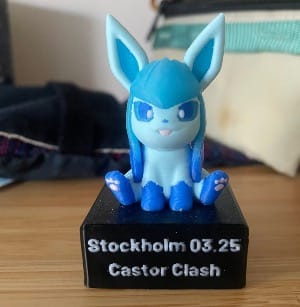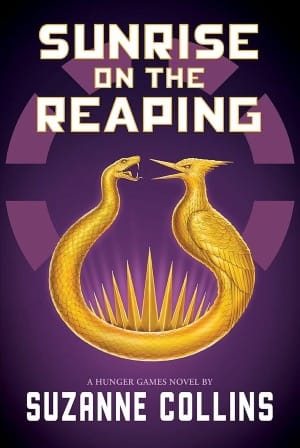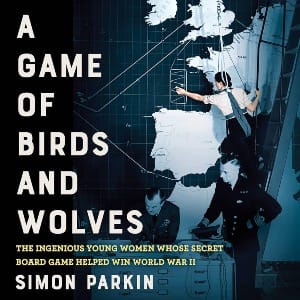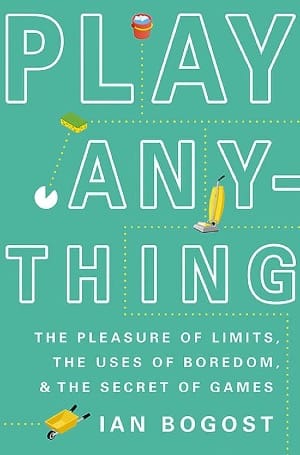Pursuit of Play, volume 8: Serious Play

We’re back from Stockholm, where I sat next to eventual Masters tournament winner Isaiah Bradner during the first round of play…and it’s worth sharing the moment when he secured his first ever regional tournament victory after knocking on the door so many times.
Pokemon doesn’t usually lend itself to such visceral expressions of joy, so that one was fun to see.
And, of course, this is Pursuit of Play - where one man and his two children journey together[1] around the European competitive Pokemon circuit. Previous editions are here.
The Pokemon Update
In short, no one did well & everyone still had a great time anyway. No Champion Points were scored, but everyone found their joy.
Nate brought a Lost Box deck, his stalwart from last season that goes away completely with the next card rotation this month. After 4 rounds, he had no chance of scoring points & dropped. He spent the rest of the weekend cheering on his friends, hanging out with them, and playing a bunch of casual games. We watched a few matches together on the main stage and ate French fries while discussing which masters we thought would win.
Tommy brought along Raging Bolt, which will probably be good after the rotation but just isn’t yet. They didn’t get the right matchups, lost their win & in to points, and then switched to a different deck to play another tournament and a side event on day 2. They played a ton of Pokemon, and they came away from the weekend with a new Snorlax plushy.
Me, I brought along Tsareena again. Heading into the weekend, I was pretty certain I would lose my first 3 matches & drop - Tsareena just has a terrible spread into the current meta - and I was right. But I enjoyed all 3 of those matches, including my final round against the father of a kid who Nate has been matched up against in juniors multiple times this season. Their group always brings along these custom tokens that they 3D print themselves, and they hand them out to their opponents after the match…and it’s just so damn pleasant.

And pleasant is the right word - this weekend in Stockholm was pleasant. Stockholm in general we find to be pleasant. We were among friends, we ate well, and we each found time to do things that brought us joy. We sucked at playing Pokemon, which was ostensibly why we were there, but we enjoyed it nonetheless.
Reflections on Play
I’ve spent most of this month thinking about the serious applications of gaming. Wargaming - the creation of elaborate scenarios in order to simulate real world geopolitical possibilities - has a long history going back well over a century to the Prussians. One version of the origin story of chess is that it was used to simulate tactics used in battle. Outside of armed conflict, there’s a whole world devoted to serious games - using the construct of a game to engage people in real world problems, sometimes as a way of cultivating empathy, sometimes as a way of stimulating thinking about possible solutions.
Candidly, I’m not encouraged by the field of serious games though I’m also not lacking in optimism about them…what I find is that in most cases when someone sets out to create a serious game, they end up creating a game that isn’t particularly fun and that lacks the level of complexity of the real world challenge leading it to be some sort of hollow politicizing that oversimplifies something complex. The military games tend to be the exceptions cuz money - national defense institutions have the money to put into building the appropriate level of complexity even for a game that might only be played once or a few times. I find myself wishing that the same thing were possible for public services like infrastructure & urban planning, but I think there’s both a lack of funding and a lack of feeling that the stakes are high enough to merit such a seemingly frivolous use of funds[2]. If anything, some games that are not explicitly designed as serious games get ushered in to the category when they are adopted and used as provocations and invitations into serious topics.
Just for fun take a look at this list of “18 serious games that changed the world,” ignoring the incredibly overblown headline. If you have played even 5 of those games, I would be shocked[3]. And the ones that you have played are probably the ones that weren’t actually designed as serious games[4].
I say all of this as a build up to the fact that the real reason that I didn’t mind dropping early from the tournament was because the newest hunger games prequel, Sunrise on the Reaping, had dropped just a couple days earlier. Nate had pre-ordered a copy, so I was able to “borrow” it while he was still playing the tournament and get in a few hours of reading.

And if nothing else[5], the world Suzanne Collins has created in the Hunger Games reinforces the idea that there is a moral dimension to gaming. Even when a game is merely aspiring to be something fun, the way it pursues fun is a reflection of some version of how the creator conceives of what is good and worthy of pursuit. Some games are manipulative[6] , some are dehumanizing. Some games - as in the case of wargaming - are used to develop and protect institutional power. It’s almost trite to say, but I’ll still say it: games are not inherently trivial.
I don’t know if it was the feeling of ease in being in Stockholm or the ability to immerse myself in this now familiar world of Panem, but as I read Sunrise on the Reaping I felt a sense of clarity for myself that I think this whole quixotic quest has been building toward for me: that I do want to spend more time building games and experiences that humanize, that create a deeper sense of connection and affinity between people. I don’t know exactly where that will go. I’m still playing around a bit with Read Me Like A Book and have some other ideas simmering. I don’t think it means I’m going full on game designer…but it maybe means I’m going more in on game designer? But, really, only for a specific kind of game that I’m hard pressed to point to a ton of immediate precedent for[7]. Guess you have to keep following along if you want to see what comes of this.
I Think (Maybe) You Should (Maybe) Read: A Game of Birds & Wolves

This book’s author, Simon Parkin, hosts one of my favorite podcasts - My Perfect Console - and has been covering the world of video games for a long time, including some writing for magazines like The New Yorker.
The thing about this book is that it’s subtitle, “The ingenious young women whose secret board game helped win World War II” is just incredibly misleading. That content is in there, but this book is mostly about the development of U-boat warfare and the man who developed the wargame that was used to defeat Germany’s U-boat strategy. I also found myself wishing that Parkin had stuck to the New Yorker’s editorial style of telling a story straight through from beginning to end. The book is just full of rising action followed by a departure to a separate plotline involving different people, and then returning to the rising action 20 pages later when it no longer has any momentum.
I DON’T Think You Should Read: Play Anything

I’m going to be candid and tell you that I have stalled out about a third of the way into this book, so maybe the final two thirds is simply stunning, and I’m leading you astray…and it’s possible. I actually like a lot of Ian Bogost’s shorter form journalistic writing, but this book maybe only works if the reader has never seriously considered the idea of fun or engaged with any other writing about fun, pleasure, games, etc. Bogost is trying too hard to critique David Foster Wallace, for some reason. Foster Wallace in his later work notably espoused the value of boredom, and Bogost seems to be saying, “When you find yourself aware of tedium, you can turn it into a little game” except the way that he defines such little games is mostly just about practice and mastery. There’s nothing wrong with that, except that I don’t think it really fits under the banner of play. I really really want to like this book, and if anyone else out there has read it and thinks I’m not giving it a fair shake please message me or comment and let me know, but at the moment it is sitting buried under quite a few others and I’m unlikely to return to it unless I get some pretty strong encouragement.
One thing I will say for this book though - in terms of learning through play, the vast majority of everything I come across related to that topic is focused on children. It’s like we’ve reached some societal consensus that play is valuable as a way of learning up until about age 8, and then we have to get serious. Bogost is one of the few people I’ve seen who is articulating the value of play for adults. He doesn’t explicitly call it learning, and in some ways he’s doing the thing of gamifying the mundane, but he’s engaging with the idea of play as a perspective for how we take on challenges throughout our lives.
Hm…maybe I just talked myself back into reading this book?
Next month, for the first time since September, we aren’t playing in a regional tournament…so what will next month’s installment contain? Ooooh, who doesn’t love a surprise.
- See what I did there? No? Oh...the new set of cards that just released is called Journey Together.
- Though I tend to disagree.
- And you should email me - but no fair counting regular Minecraft as one of yours. You have to have played the education edition…and the only way you did is if you were in school at the time, and your school bought a license for it.
- cough, Microsoft Flight Simulator, cough
- But oh my word, just so much else. There are few series for which I have so much affection.
- Sadly, I would include the majority of learning games in this category.
- Though a lot of adjacent precedent.

Member discussion